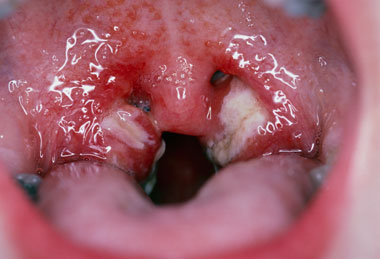An adenoidectomy is a quick operation to remove the adenoids – small lumps of tissue at the back of the nose, behind the palate.
What are adenoids?
Adenoids are part of the immune system, which helps fight infection and protects the body from bacteria and viruses.
Adenoids are only present in children. They start to grow from birth and are biggest when your child is approximately three to five years old.
But by age seven to eight they start to shrink and by the late teens, are barely visible. By adulthood, the adenoids will have disappeared completely.
The adenoids disappear because – although they may be helpful in young children – they’re not an essential part of an adult’s immune system.
You will not be able to see your child’s adenoids by looking in their mouth.
When do adenoids need removing?
It may be necessary to remove the adenoids if they become swollen or enlarged due to:
infection with bacteria or a virus (adenoiditis) – although the infection will eventually clear up, the adenoids may remain enlarged
allergies – allergens (substances that trigger an allergic reaction) can sometimes irritate the adenoids, making them swell up
Adenoids can also be removed to treat recurrent ear infections or glue ear.
Read more about why adenoids need to be removed.
What is an adenoidectomy?
An adenoidectomy is a quick operation to remove the adenoids. It takes about 30 minutes to perform and is carried out in hospital by an ear, nose and throat (ENT) surgeon.
In most cases your child can go home on the same day once the effects of the anaesthetic have worn off.
Read more about how an adenoidectomy is performed and recovering from an adenoidectomy.
Are there any risks?
The operation carries very few risks. Removing the adenoids will not put your child at greater risk of developing infection. The body’s immune system is perfectly able to cope with bacteria and viruses without the adenoids.
However, as with all surgery, there is a small risk of complications such as infection, bleeding, nasal discharge, or an allergic reaction to the anaesthetic.
There may also be some temporary minor health problems such as a sore throat, earache or a blocked nose for a few weeks.
Read more information about the risks of an adenoidectomy.
